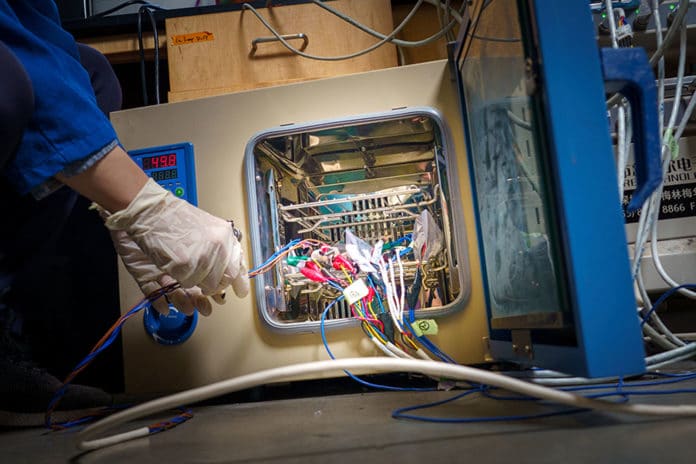By developing a new versatile and robust electrolyte, the University of California San Diego engineers have developed lithium-ion batteries that perform well at freezing cold and scorching hot temperatures. Such batteries could be used in electric vehicles in cold climates to travel farther on a single charge. They might also lessen the requirement for cooling systems to prevent the battery packs of vehicles from overheating in hot areas.
Zheng Chen, a professor of nanoengineering at the UC San Diego Jacobs School of Engineering and senior author of the study, said, “You need a high-temperature operation in areas where the ambient temperature can reach the triple digits, and the roads get even hotter. In electric vehicles, the battery packs are typically under the floor, close to these hot roads. Also, batteries warm up from a current run-through during operation. If the batteries cannot tolerate this warmup at high temperature, their performance will quickly degrade.”
The newly developed electrolyte is made of a liquid solution of dibutyl ether mixed with lithium salt. Dibutyl ether has a unique property because its molecules have a weak affinity for lithium ions. Plus, dibutyl ether can easily take the heat because it stays liquid at high temperatures (it has a boiling point of 141 C or 286 F).
In other words, as the battery charges and discharges, the electrolyte molecules can easily release the lithium ions.
Another exciting feature of the newly developed electrolyte is that it is compatible with a lithium-sulfur battery. Lithium-sulfur batteries are essential to next-generation battery technologies because they promise higher energy densities and lower costs.
Chen said, “If you want a battery with high energy density, you typically need to use very harsh, complicated chemistry. High energy means more reactions, less stability, and more degradation. Making a high-energy battery that is stable is a difficult task itself—trying to do this through a wide temperature range is even more challenging.”
“The dibutyl ether electrolyte prevents these issues, even at high and low temperatures. The tested batteries had much longer cycling lives than a typical lithium-sulfur battery. Our electrolyte helps improve the cathode and anode sides while providing high conductivity and interfacial stability.”
The team also engineered the sulfur cathode to be more stable by grafting it to a polymer. This prevents more sulfur from dissolving into the electrolyte.
The next steps include:
- Scaling up the battery chemistry.
- Optimizing it to work at even higher temperatures.
- Further extending cycle life.
The temperature-resilient batteries are described in a paper published July 4 in Proceedings of the National Academy of Sciences (PNAS).
